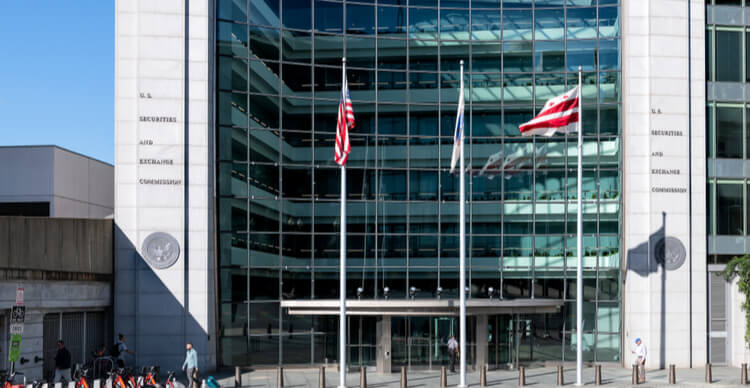From Soundbites to Headlines: Media's Political Influence
In today's digital age, the media plays a significant role in shaping public opinion and influencing political discourse. From traditional news outlets to social media platforms, information is disseminated rapidly and has the power to sway public perception. This article explores the transformation of soundbites into headlines and examines the profound political influence wielded by the media.
The Evolution of Soundbites
The media landscape has evolved significantly over the years, and with it, the format of news delivery. Soundbites, short snippets of information extracted from longer speeches or interviews, have become a prominent feature of modern media. Once used to provide concise summaries, soundbites now shape news coverage and can have a profound impact on public perception.
The Media's Agenda-Setting Power
One of the most significant influences of the media is its agenda-setting power. By choosing which topics to cover and how to frame them, the media has the ability to shape public discussions and determine what issues are considered important. Headlines play a crucial role in this process, capturing attention and directing the public's focus towards specific subjects.
The media's agenda-setting power refers to its ability to influence public opinion and shape the issues and topics that people consider important. It is a concept in mass communication and political science that suggests that the media plays a significant role in determining what issues are discussed and debated in society.
The media's agenda-setting power is based on the idea that the media selectively presents certain stories, events, and information while ignoring or downplaying others. Through their news coverage, editorials, and framing of stories, the media can draw attention to specific topics and shape the public's understanding and perception of those issues.
There are several ways in which the media exerts its agenda-setting power:
Gatekeeping: The media acts as a gatekeeper by deciding which stories to cover and which ones to exclude. They have the power to prioritize certain events or issues over others, influencing what the public is exposed to.
Framing: The media's choice of language, tone, and perspective in reporting can influence how people interpret and understand an issue. By framing a story in a particular way, the media can shape public opinion and set the agenda for discussion.
Priming: The media can also prime the public's thinking by giving more attention to certain issues, thereby increasing their salience in people's minds. When a topic is repeatedly covered or presented as important, it can influence the public's priorities and shape their opinions.
Agenda-building: Through their coverage, the media can elevate specific issues to the national or global agenda. By focusing on particular topics and providing extensive coverage, the media can bring attention to important problems and stimulate public discourse.
The media's agenda-setting power has both positive and negative implications. On the positive side, it can help raise awareness about important social, political, and environmental issues. It can also hold governments and institutions accountable by exposing corruption and wrongdoing.
However, there are also concerns about the media's agenda-setting power. Critics argue that media organizations can be influenced by their own biases, political agendas, or commercial interests, which may result in a narrow or skewed representation of reality. There is also the risk of sensationalism and the prioritization of entertainment value over substantive news.
Ultimately, the media's agenda-setting power highlights the influential role they play in shaping public opinion and discourse. As consumers of media, it is important to be critical, seek diverse sources of information, and engage in thoughtful analysis to avoid being solely reliant on the media's agenda for our understanding of the world.
Framing the Narrative: Media Bias
Media bias is a topic of frequent debate, and it can have a significant impact on political influence. Different media outlets may present information from a particular perspective, shaping the narrative and influencing public opinion. Recognizing and understanding media bias is crucial for individuals to obtain a well-rounded view of political events and policies.
Sensationalism and its Impact
Sensationalism is a tactic used by the media to attract attention and increase viewership. It involves emphasizing dramatic or provocative aspects of a story, sometimes at the expense of accuracy or context. Sensationalist headlines can distort the true significance of events, leading to a skewed understanding of political issues among the public.
Social Media and Political Influence
The rise of social media platforms has further amplified the media's political influence. With millions of users sharing news articles, opinions, and personal experiences, information spreads rapidly, often without thorough fact-checking. The virality of content on social media can shape public sentiment and even impact electoral outcomes.
The Role of Fact-Checking
In an era of "fake news" and misinformation, fact-checking plays a vital role in maintaining the integrity of news reporting. Fact-checkers scrutinize claims made by politicians and public figures, verifying their accuracy and providing readers with reliable information. However, the effectiveness of fact-checking is hindered by the fast-paced nature of news consumption and the prevalence of biased news sources.
The Ethics of Journalism
Journalistic ethics serve as a guiding framework for responsible news reporting. Journalists are expected to adhere to principles such as accuracy, fairness, and transparency. However, ethical dilemmas can arise when media organizations prioritize profit or succumb to external pressures. Upholding ethical standards is crucial for preserving the media's credibility and minimizing undue political influence.
Media Literacy: Navigating the Information Landscape
In an era of information overload, media literacy has become increasingly important. Individuals need to develop critical thinking skills to evaluate news sources, recognize biases, and discern between reliable information and propaganda. By fostering media literacy, individuals can empower themselves to make informed decisions and resist undue political influence.
The Manipulation of Public Opinion
The media's political influence is not limited to presenting news and information. It can also involve shaping public opinion through strategic messaging and persuasion techniques. By selectively highlighting certain viewpoints or employing emotional appeals, the media can manipulate public sentiment and sway popular support.
Media Regulation: Balancing Freedom and Responsibility
The regulation of media presents a complex challenge. Balancing the principles of freedom of speech and the need for responsible journalism is crucial. While excessive regulation can impede press freedom, a lack of oversight can lead to the spread of misinformation and the manipulation of public opinion. Striking the right balance is essential for a healthy democratic society.
Case Study: Presidential Elections and Media Influence
Presidential elections serve as a prominent example of the media's political influence. Candidates heavily rely on media coverage to reach voters and shape their public image. The media's focus on specific issues, portrayal of candidates, and the influence of endorsements can significantly impact electoral outcomes.
The Future of Media and Political Influence
As technology continues to advance, the future of media and its political influence remains uncertain. Artificial intelligence, personalized news algorithms, and deepfake technology pose new challenges. It is crucial to continuously assess the evolving media landscape and develop strategies to mitigate potential risks to democratic processes.






 English (US) ·
English (US) ·